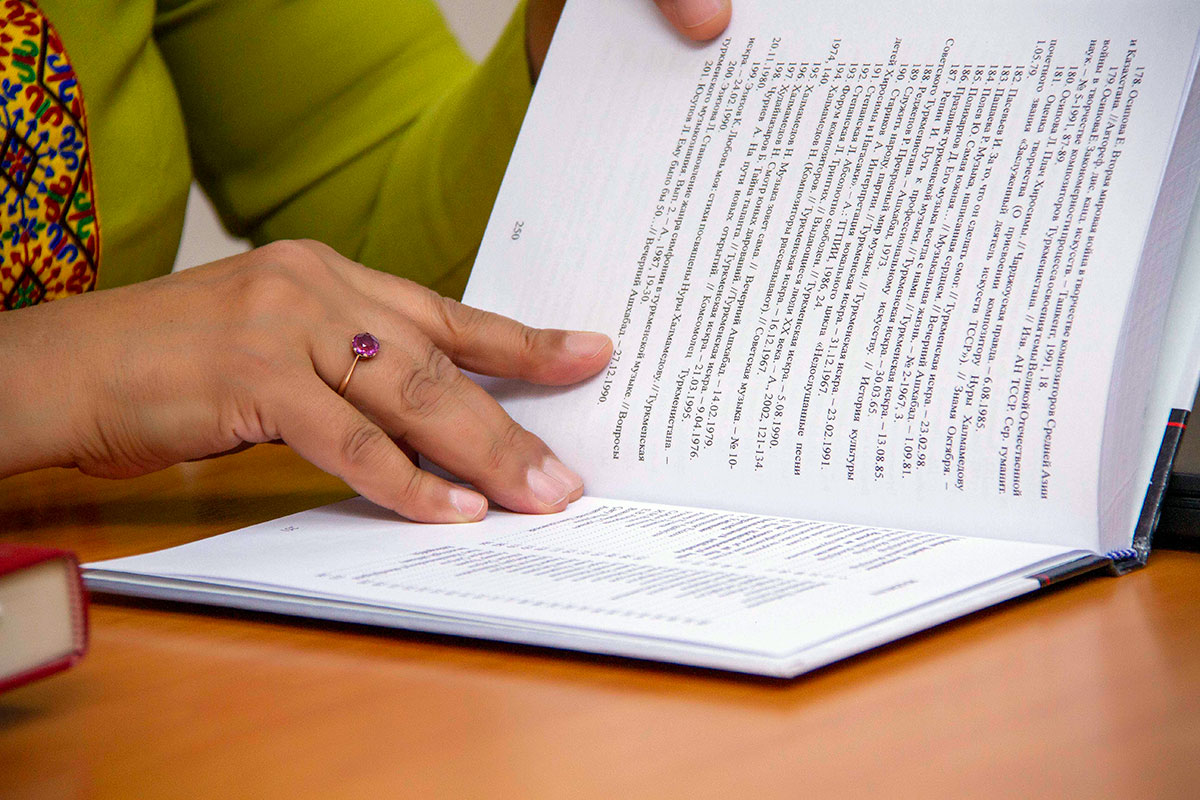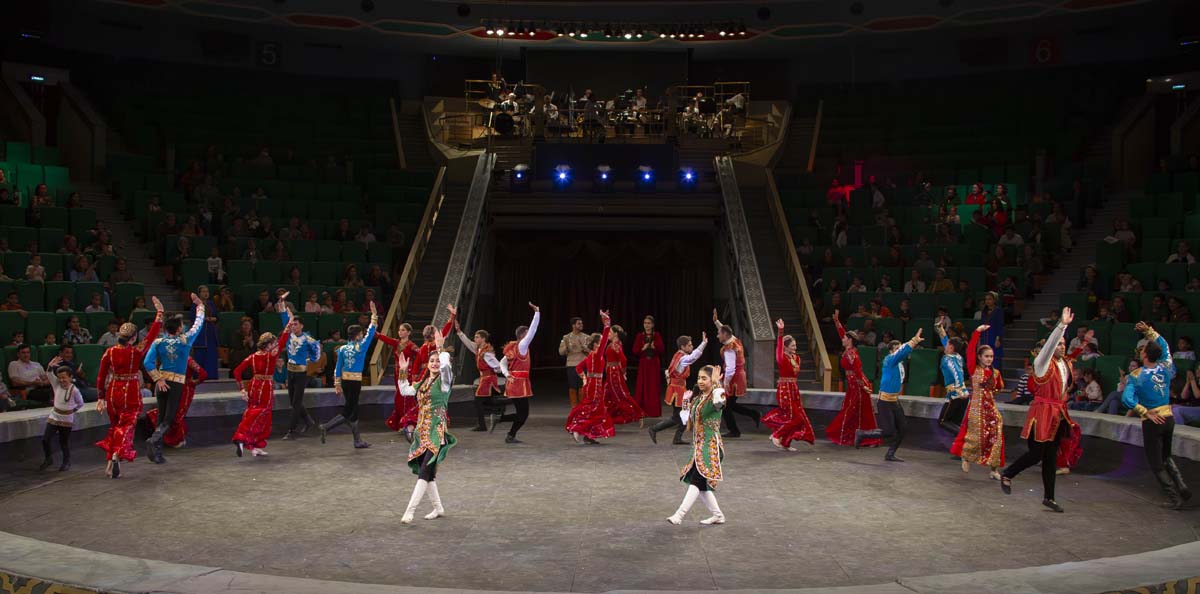Senior Lecturer of the Department of Music History of the Turkmen National Conservatory named after. Mai Kulieva, Candidate of Art Criticism Jamilya Kurbanova is the author of two monographs, three textbooks for students of the conservatory and music schools, as well as more than 80 scientific publications on Turkmen folk music. One of her monographs is dedicated to the outstanding composer of the 20th century Nury Khalmamedov.
We met with Jamila Azimovna and asked her to tell us about how this fascinating book was created, which is most interesting not only for musicians, but also for any cultured person.
- In 2003, a cinematography festival was held in Paris, where Turkmenistan presented the film "Contest", and at that time I was doing an internship at the Sorbonne University, - Jamilya Azimovna began her story from afar. - I was approached with a request: "For the duration of the two-day film festival, to become a translator for my compatriot Bulat Mansurov: he spoke German, and I spoke English."
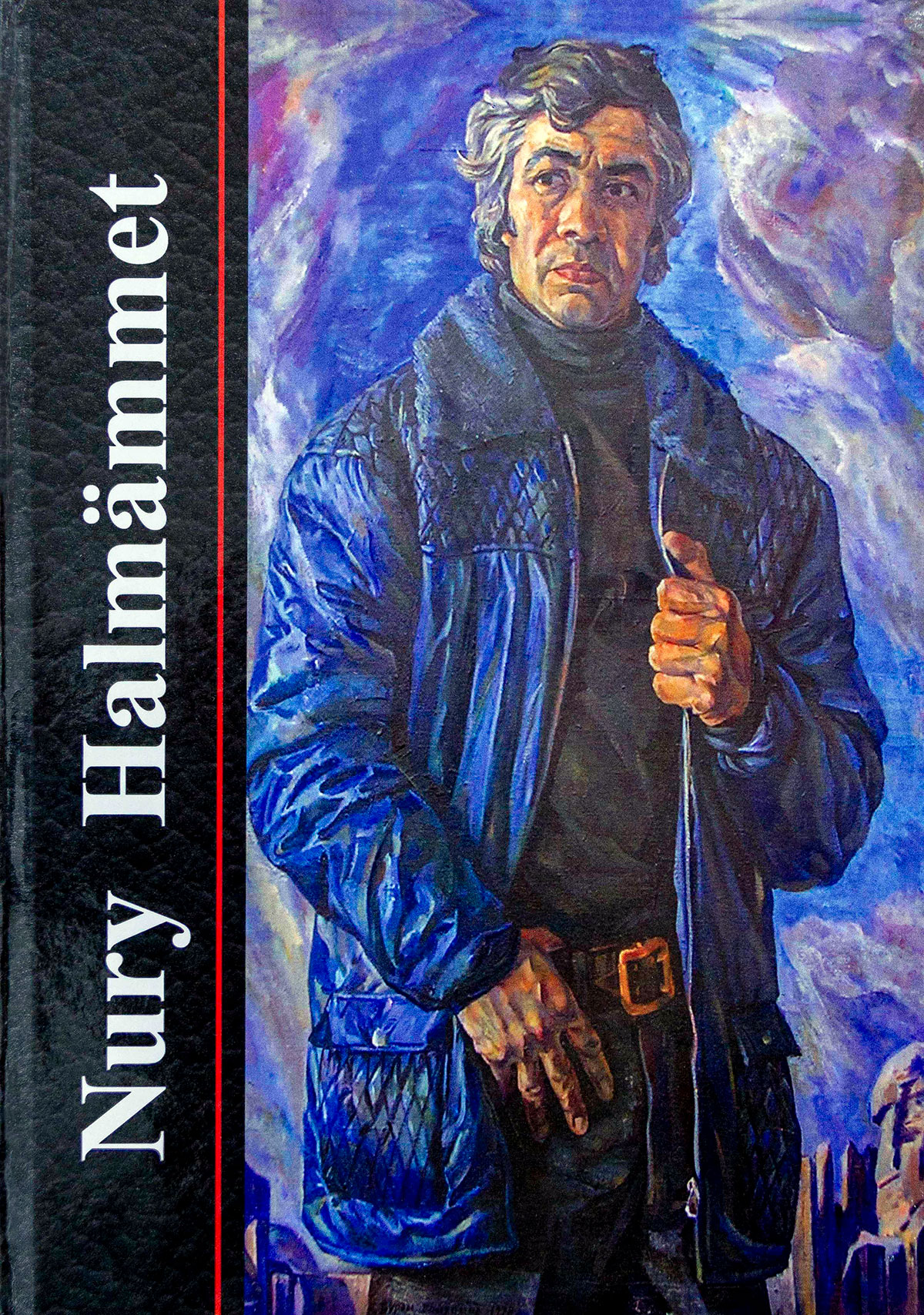
I put on a national dress and joined a noisy team of filmmakers who spoke differently, on whom my Turkmen outfit made a good impression. I have seen the film "Competition" more than once, enjoying the dutar of Shukur-bakhshi. But this time, together with the filmmakers, the perception of music turned out to be more sensitive: I immersed myself in the subtle grace of bakhshi folk sounds, turning into symphonic music that emotionally captured, delighted, shocked!
In a private conversation, Bulat Mansurov said that he planned to make a short film out of this parable, but Nury brought so much incomparable music, which he did not raise his hand to cut. I had to edit a full-length film to the music.
- When did you see Nury Halmamedov for the first time?
- In childhood. My father, journalist Azim Akhmedov, was friends with Nury Halmamedov and was a great admirer of talent, as, indeed, was everyone who heard the music of this composer. We lived not far from each other - microdistricts 6 and 11, and Nury Halmamedov often came to us. Dad really wanted to create something with him. He offered to write a libretto for the opera Gerogly, but Nury Halmamedov, apparently, was not yet ready for this opera. And dad realized that Nury Khalmamedov's talent is unique, it is impossible to control it. He writes only from the dictates of his heart.
- What prompted you to write a monograph about Nury Halmamedov?
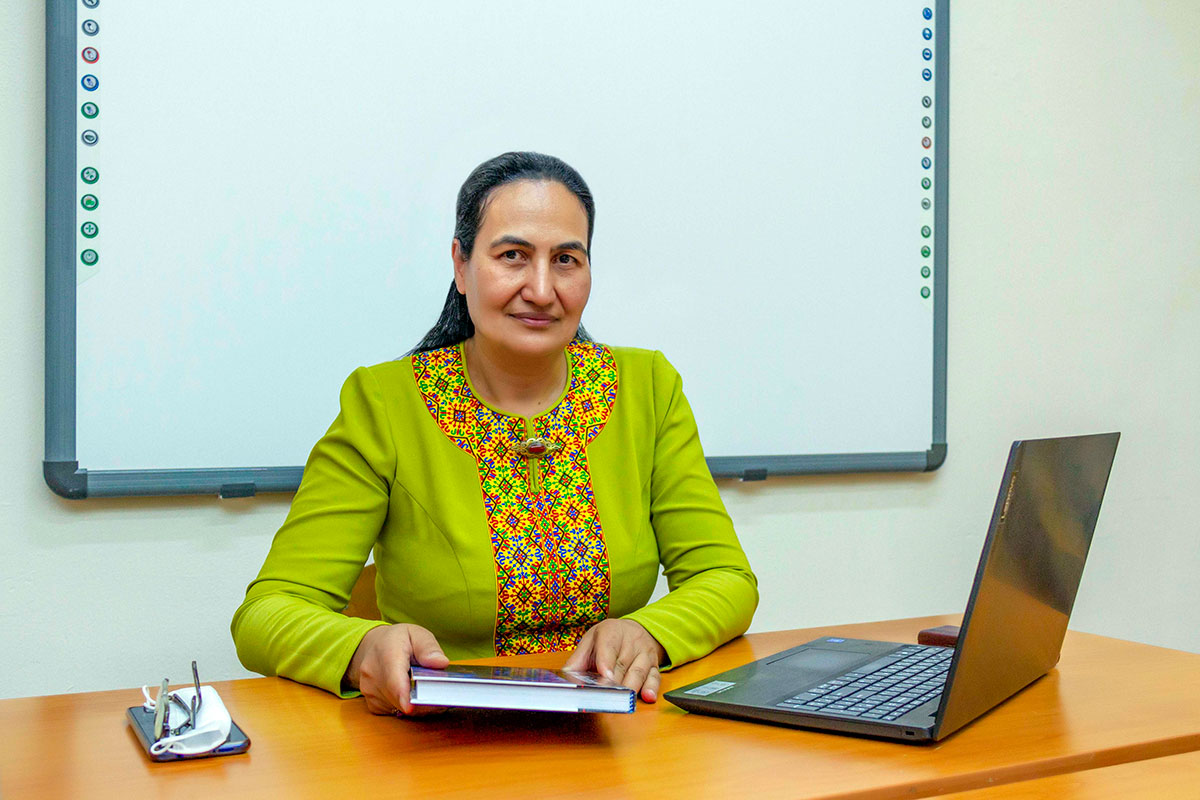
- At first there was a Ph.D. thesis “The Combination of European and National in the Works of Nury Halmamedov”, by the way, this topic was suggested by my father. And a year after defending my dissertation, the book “Nury Halmamedov” was published: I wanted to tell about it not only to musicians, but also to a wide range of readers.
- Your monograph is written in an art-documentary style. You introduced the reader to the composer Nury Khalmamedov and the man of Nury Khalmamedov, introduced us to his close circle of friends, who, in turn, told stories that helped to reveal the deep essence of this brilliant man.
- To write about Nury Khalmamedov in a stereotyped way: a difficult orphan childhood, craving for music and stunning success in composition would not be worthy of his talent. He was born not like everyone else, did extraordinary things, did not fit into the generally accepted framework, most likely, without this there are no geniuses. Let me give you an example: to study at the Moscow Conservatory. Tchaikovsky is the dream of all musicians, but due to absenteeism, the order to expel student Halmamedov was already on the rector's desk and would have been signed if at that time he had not been shown the score of the symphonic suite "Turkmenistan". Looking at the notes, the rector exclaimed in surprise: “This is talent!”. And there were plenty of such curious cases in the life of the great composer.
We meet something similar in the memoirs of the film director of the film "Jepbucks" Kakov Orazsakhatov. They came to Moscow to sound the music for the film, but Nury Halmamedov has not yet written the central song. Kakov locked the composer in the hotel room so that no one would disturb him while he was working. And upon his return, he met a company of noisy guests in the room. What was ready to make an unprecedented scandal, but at that time, among the general fun of Nury Halmamedov, inspiration suddenly dawned on him. And he, paying no attention to anyone, sat down at the piano and wrote a wonderful song for the Japbucks.
- It seems to me that any contact of artists, writers, artists with Nury Halmamedov immediately turned them into admirers of the outstanding composer. To reach his circle of friends, you probably had to work hard.
- Gulsoltan Klychevna, the wife of Nury Khalmamedov, helped me. A surprisingly suitable match for a genius - an intelligent, reserved and wise woman. I wanted her to also appear in the book with memories of her extraordinary husband, but because of her inherent modesty, she chose to remain in the shadow of his fame. Unfortunately, Gulsoltan Klychevna has recently left us. I want to express my deep gratitude to the artist Khadzhi Atakgaev, who provided invaluable assistance in the selection of archival materials and photographs.
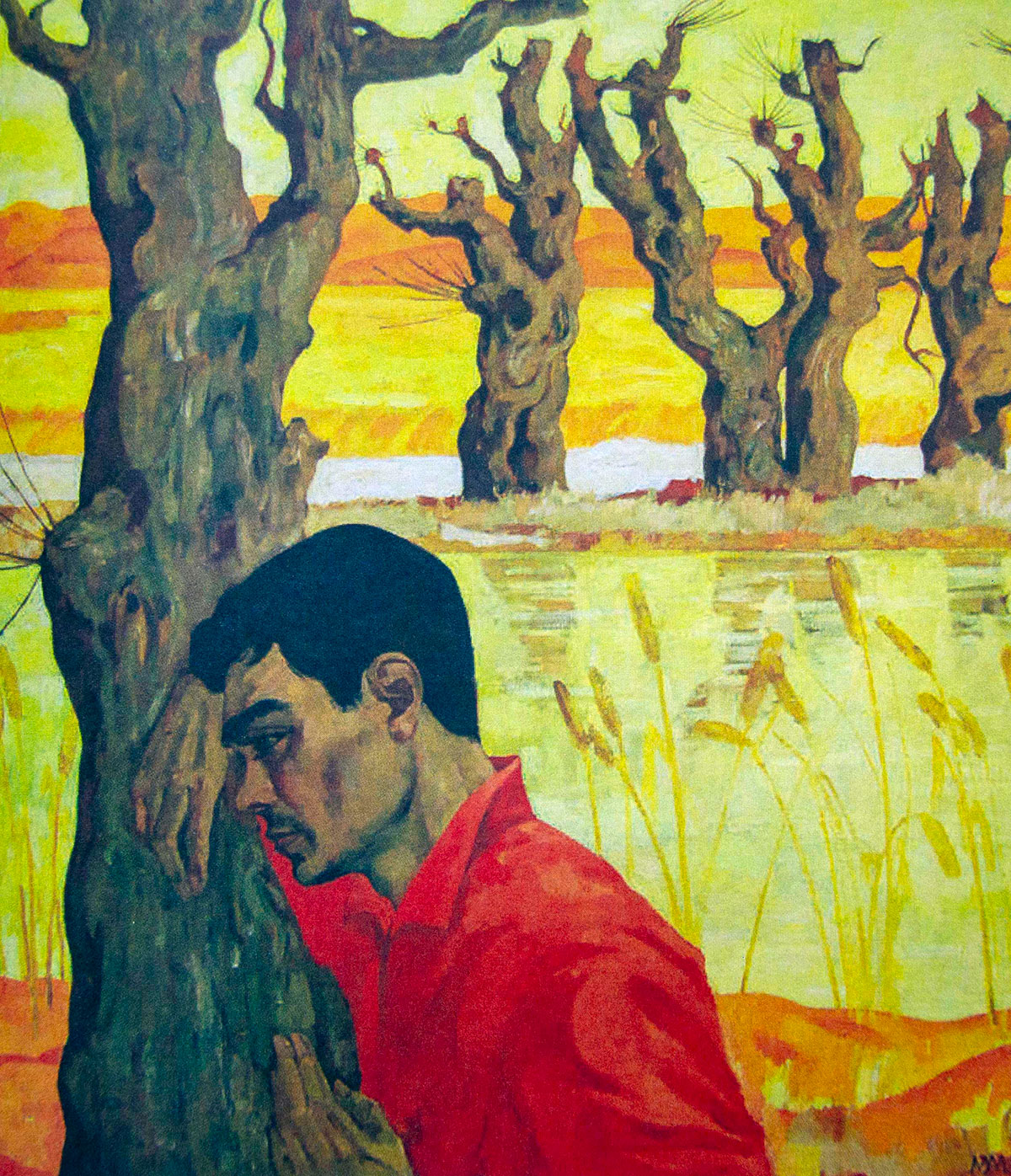
- The monograph is illustrated not only with photographs of Nury Halmamedov and his famous entourage, but also with the works of famous Turkmen sculptors and artists who embodied the image of a brilliant compatriot in their works.
- It is interesting that the artists approached the depiction of the portrait of Nury Halmamedov in different ways. For Yarly Bayramov, this is a superman endowed with demonic talent, for Mammad Mammadov, this is a very vulnerable person who leaned his head against a tree during a discussion by the commission of his next work! (And he was still worried about the assessments of his masterpieces?!). The artist Abdulla Abdullayev presented the Turkmen genius very accurately: he dressed Nury Khalmamedov in a tailcoat, and threw a national don over it, thus connecting world music with Turkmen music ... It is a pity that at the time of writing the book there were no paintings depicting Nury Halmamedov with the poet Kurbannazar Ezizov. They appeared later. I had to insert two poems from Nury Khalmamedov's best friend into the monograph.
- Jamilya Azimovna, having read your monograph, I could not but notice your great literary abilities. You would be writers, and you became a musicologist. How did it happen?
- I was born in a family of musicians, in which primary musical education was compulsory for children. She studied at the Republican Music School in the piano department, but at some point she became disillusioned with piano music and dropped out of school. A year has passed, during which I realized that I do not have enough music, and entered the 1st music school. And then everything, like all professional musicians: a college, an art institute (now a conservatory). Even while studying at school, teachers noticed my interest in the fate of Turkmen and Western European composers and often gave me topics for reports. So the beginning of the profession of musicologist was laid a long time ago. From the second year of the Institute of Arts under the student exchange project, my then-future husband Murad Kurbanov and I were sent to the Almaty Conservatory. After graduation, we were offered to stay and work at the conservatory. However, we cannot imagine life without the Motherland and returned to Turkmenistan as certified musicologists.
As is customary in musical families, our children also studied music, but after graduating from a music school, my son chose a different path in life for himself, and my daughter teaches guitar at a music school.
The profession of a musicologist consists of painstaking research work, and when the results are presented in good literary processing, the material wins a lot. So my literary abilities, noted by you, help in my work.




